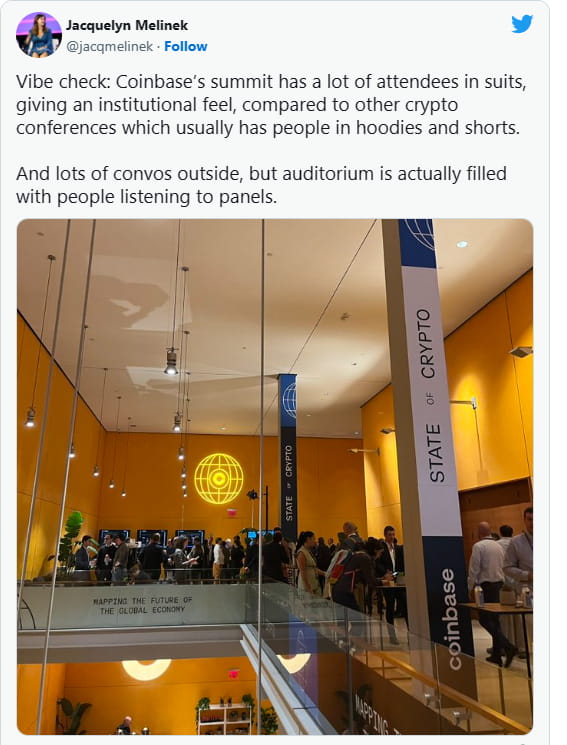
Key Takeaways
Traditional Fi continues to exist through DeFi
Will Wall Street End Crypto Anarchy?
Encryption Development Barriers
Anyone involved in traditional investment avenues such as Wall Street or investing in cryptocurrencies should be aware of the paradigm shift that is taking place in the crypto world. The entry of major companies such as BlackRock and Fidelity into the crypto market marks the beginning of the end of lawless crypto as we have always known it.
In the past, cryptocurrencies have survived largely by word of mouth. There are no strict regulations.
You can use your crypto to buy anything you want, including illegal substances from platforms like Silk Road.
The reason is that there is no regulation or oversight of the technology. All we have is a code assigned to a wallet, which can be owned by almost anyone in the world.
Tokens are transferred from one wallet to another, making contracts attached to the purchase of products or services with no one in the world paying attention. Understandably, it is a haven for criminal activity as it is completely off the radar of any law enforcement agency.
Things got even more serious when businesses began to develop around cryptocurrencies, creating new avenues for profit and revenue. While there were initial regulations to help things maintain a certain legality, loopholes opened up as opportunities arose for the greedy. Crypto disasters like FTX have really drawn attention to crypto, tempting governments to pay more attention to how crypto is being abused.
While we can’t say that regulations are now impeccable, we can say that regulators have learned lessons from each crackdown, whether it’s FTX, Celsius, Terra, or others.
Cryptocurrency, suits and ties
Cryptocurrency is now evolving into what it will eventually become the longer it survives.
After all, the technology is based on the safe and efficient transfer of funds, which is what any financial institution in the world hopes to achieve. Therefore, it is not surprising that financial institutions have taken steps over the years to shape cryptocurrency into the successor it will eventually become to traditional finance.
BlackRock CEO Larry Fink perfectly described it for what it is, “digital gold.” He was basically referring to the decentralized nature of cryptocurrencies, especially Bitcoin.
The head of the world's largest asset manager was referring to how gold retains its value regardless of the currency of the country that holds it. Moreover, this is exactly the point behind crypto. The whole idea is to disconnect from traditional economics and finance and give people the choice of using a currency that is fair anywhere in the world.
Now, companies like BlackRock are banking on the decentralized power of cryptocurrencies. After all, companies, like individuals, want to protect themselves from inflation and the fluctuations in the value of fiat currencies.
It is for this reason that it seems that companies, led by BlackRock, as well as governments, are now among the main players at most major crypto summits. “Crypto bros” are now being replaced by corporate figures. Phrases such as “dog on the moon” are now being replaced by phrases such as ETFs and quotes from regulators.

Are Corporate Crypto Acquisitions a Bad Thing?
It really depends on how you look at it. Essentially, Bitcoin and the blockchain are supposed to be a way to help us get rid of corporate and government regulation.
Back in 2013, the founder of Nxt, a platform that aims to improve upon Bitcoin’s blockchain technology, BCnext, wrote a blog post highlighting the whole point behind crypto. Unfortunately, the blog has since been deleted, but the key statement in it was
“Don’t trust anyone. This is a very important principle. Nxt does not rely on trust, but solves the trust problem in another way. It evolves into a system that does not care about trust, because everything will be very clear. Transparency extended to its absolute purpose will lead to the impossibility of cheating. This eliminates the need to doubt whether anyone should trust anyone else.
Moreover, this is the basis for corporate acquisition of cryptocurrencies. Unfortunately, ordinary people are increasingly distrustful of large companies, whether they are financial institutions like BlackRock or technology companies like Meta.
So naturally, the argument against said corporate takeovers is that we would be entrusting companies we already don’t trust with a technology that was supposed to free us from them.
Enterprise Protection
However, there is another way to look at it. It is unfortunate that the government failed to protect consumers from crypto failures like FTX and Celsius because these companies’ entire business plans were based on crypto.
However, companies like BlackRock already have a well-established portfolio of businesses. To put this into perspective, BlackRock manages over $9 trillion in assets, including stocks of major companies like Disney, Uber, Spotify, etc. This means that these companies are less likely to collapse and pay back their customers.
Perhaps the biggest concern is market manipulation. If companies like BlackRock already own so much and are intent on increasing profits at any given time, what stops them from manipulating the crypto markets to suit their personal agenda?
Well, this is where the government plays a critical role. Regulators such as the SEC refuse to accept ETF applications that would allow these companies to enter the market without providing watertight guarantees that their operations will remain fully transparent to the government, eliminating any possibility of foul play.
As it stands, major companies including BlackRock and Fidelity are working with Coinbase, the largest U.S. exchange, to establish a shared security agreement with the government. This is ironic considering that Coinbase itself is in a legal battle with the U.S. Securities and Exchange Commission.
So, at this point, the situation can be summed up as “we’ll see what happens.” However, traditional financial companies appear to be joining the world of decentralized finance in some ways.






